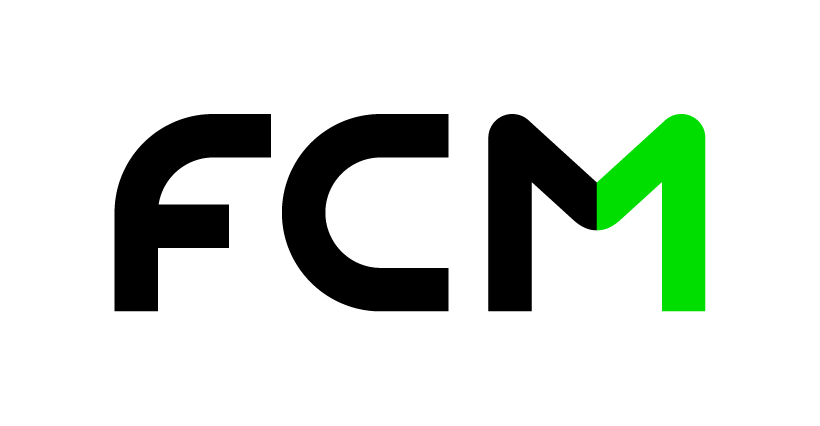

The corporate travel world may never be the same as it was before COVID-19, but that doesn’t mean it can’t change for the better. Sustainability, accessibility, as well as health and safety have become top priorities for corporates today. Does New Distribution Capability have the power to deliver on these new priorities and become the industry’s savior?
Over half of corporate travelers believe new and better things await business travel in 2022, according to an FCM travel trend survey polling 175 respondents from 26 countries on burning travel issues.
Rated as ‘very important’ by FCM customers in this changed world are duty of care as voted by 73% of customers (with 46% specifically indicating traveler tracking as a very important element of duty of care). A very close second is sustainability, with 71% of FCM customers saying this is very important to them.
NDC has the potential to tackle these new priorities in unique ways. As Nicola Ping, Global Product Director, Air Distribution for the Flight Centre Travel Group, explains: NDC is an enabler for “real-time” servicing.
Simply put, that means NDC makes it easier to improve things like health and safety for travelers. For example, travel managers can track their travelers based on the flight they boarded. Even if a traveler hopped on an earlier flight because their meeting ended early, travel managers will easily be aware of this through NDC.
The real-time capability of NDC could also be an enabler for sustainability. “NDC offers real-time information at the time of shopping, creating a more retail-like experience which has been lacking in corporate travel,” says Ping. “Among many other benefits, this allows sustainability-focused corporates to select newer and more fuel-efficient aircraft at the time of booking.”
Who Can Benefit from NDC?
If all parties work together, everyone in the value chain stands to benefit from NDC.

The sale of ancillaries through NDC enables a more tailored shopping experience for corporate travelers, a more lucrative sales process for airlines, and a more efficient booking process for the travel booker and the company. With NDC, airlines can increase revenue opportunities through better promotion of the extras they have on offer, such as onboard Wi-Fi and airport lounge passes, but also ensures they are only offered to those travelers who don’t already get them included. The user-friendly environment created by NDC leads to lack of leakage as well as a much better tracking and reimbursement process.
According to David Weaver, Mgr. of Global Travel for the Bechtel Corporation, the technologies available in omni-channel distribution in NDC environments are much more flexible and can deliver more content and more services for travelers and corporations. Simple things like frequent traveler status can be communicated much better across the value chain, allowing TMCs to have a clear overview of who gets priority boarding, or which traveler is on the waitlist for priority upgrades.
In terms of duty of care and sustainability information, the current platforms aren’t moving fast enough to accommodate all the information needed to book a trip, according to Weaver. Is quarantine required? Is a negative PCR test required? Do travelers need to be vaccinated? With NDC channels, this information can be easily pushed to the travel agent or through the booking tool to inform the traveler. By creating a value environment through NDC, it also allows the travel booker to make better decisions, says Weaver. That value environment includes pertinent information.
Finally, NDC also has the potential to curb travel policy leakage, according to Weaver. He explains that the content an NDC, omni-channel or API environment can provide, is exactly the kind of content users are currently booking out of channel. “We need to do better to create a better experience,” says Weaver. If you build a good wheel, people will come and use it. NDC has the potential to create a better user experience and eliminate the need to book out of policy.”
With NDC, corporate shopping is no longer anonymous. At every step in the travel booking process, data is being gathered. The more corporate travelers access NDC content, the more airlines learn about the traveler’s preferences and shopping habits. The result? Personalized content. For example, if travelers regularly choose to pay for onboard Wi-Fi, the airline could offer it as part of their corporate deal creating added value and further enhancing the traveler experience. The real-time information available through NDC also greatly enhances duty of care as well as sustainability choices.
Neil Geurin, Managing Director of Digital Customer Experience and Distribution Strategy for American Airlines recently said it’s all about delivering what travelers want. “We know corporate travelers tend to need Wi-Fi and that pretty much every company is happy to fund it,” says Geurin. “The corporation also likely wins if its senior managers have speedy boarding and a premium cabin seat so they can be more productive. With NDC our corporate customers will be able to work with us to help define their experience with American.”
Reality Check! Has NDC Delivered?
NDC originally launched in 2012. Now ten years down the lane, has NDC delivered on richer content for TMCs and more tailored offers for shoppers?

The feedback from buyers and TMCs, according to a recent survey conducted by the Business Travel Association was that aside from lower fares, nothing has changed for the traveler and very little has changed for the TMC.
So far, TMCs say that NDC has not yet enabled them to be more customer-focused, to better sell ancillaries, or to be more competitive. There has been no improvement to their offering, there is minimal opportunity for upselling, and instead of seeing business improvement, TMCs report more business process complexity.
Similarly, corporations that were hoping to benefit from better policy enforcement, greater cost control, better quality reporting, and increased traveler satisfaction were left disappointed.
Another huge obstacle is that airlines are moving at different speeds with NDC deployment. This has resulted in instability, according to IATA.
In short: NDC has not hit the spot quite yet. But that doesn’t mean all is lost. Quite the contrary.
Weaver explains that there has been some frustration on the slow pace of development. “We have the expectation that it should be there, and it is not yet. However, change of this scale is going to take time. We’re starting to see the NDC discussion with an omni-channel type of presence that pulls API content from suppliers and put it in the customers’ basket. That is happening already.”
According to Weaver, people need to understand that NDC can provide better and more ancillaries, more services and more critical information for the traveler and the booker. “That is what NDC can be. But demand pull from the customer will be critical to open the door,” he says.
Florian Mueller, Consulting Air Practice Lead for FCM US, explains that 2022 will be a pivotal year for NDC. “We know that NDC has the potential to fulfill the new and changed priorities of business travelers today,” he says. “NDC encourages innovation by creating greater flexibility and quicker speed to market, and that is exactly what we need in the current corporate travel landscape. 2022 will be the golden year for NDC to deliver on its promises and help rebuild a better and reimagined corporate travel space.”
To achieve this, Mueller urges the entire travel value chain to collaborate, as only by working together can we rebuild a strong travel sector. “This is why we are working closely with all stakeholders in the industry (major GDSs, payment providers, online booking tools, and leading airlines) to ensure our customers have maximized NDC benefits while ensuring FCM’s wide-ranging services continue in our customers’ distribution channel of choice,” says Mueller.

NDC AT A GLANCE
To give you a glimpse of what New Distribution Capability could mean for your company, Ping highlights the following features FCM offers through NDC:
1. End-to-end servicing – The industry NDC standards around servicing and airline capabilities have progressed significantly during 2021. FCM will only sell airline content that works with all FCM’s existing servicing processes, so prior to offering the content FCM ensures that functionality needed such as cancel, void, change flight, etc., is all working. FCM is continuing to work with IATA and airlines to finalize the last remaining gaps in servicing capability.
2. Disruption handling – Notification messages need to be transmitted from the airline to the agent and the passenger in case of time changes or flight cancellations. FCM will ensure that customers can be assisted if there is a disruption to the passengers’ flights. FCM’s aggregated solutions receive the messages from the airline so the FCM consultant can notify travelers of the changes and then assist them when required. This means that tools such as the FCM Mobile app will have the correct information about NDC bookings. On the day of departure, servicing of bookings can also be handled by the airline at the airport.
3. Reliability of airline technological infrastructure – Existing GDS technology uses tried-and-tested technology, capable of handling the billions of requests being made from a variety of sources at any one time. In NDC, the full burden of the request is with the airline, which only handles about 30% of the volume of interactions. In 2020, many airlines upgraded their IT systems and over 20 airlines surpassed IATA’s NDC leaderboard target of 20% NDC bookings, which indicates their technological infrastructure’s resilience and reliability. FCM has a Minimum Viable Product that the airlines must meet before the TMC will sell their NDC content. This provides assurance to customers that the risks associated with NDC are minimized.

FCM has been at the forefront of NDC adoption, most recently being granted inclusion to the IATA Airline Retailing Maturity (ARM) Index, amongst the first global TMCs to do so. To learn more about how FCM can help you get ready for the future of corporate travel through NDC, click here.

The Way Forward: How Do You Know If NDC Is Right for You?

FCM is NDC-ready, which means the TMC is live delivering NDC content to its corporate customers. FCM is also working closely with IATA, airlines, and technology partners to make sure NDC delivers transparency, choice, consistency, cost-efficiency, and a seamless service experience.
Mueller explains that FCM will continue to lead conversations with the airlines, IATA, TPConnects, Sabre, and Amadeus to enable all differentiated NDC content to be available to FCM customers. “We will continue to work with all our customers to ensure they fully understand both the impact and the true benefits of NDC content.”
Can NDC deliver the value to your company that traditional methods don’t offer? Is that value outweighed by the additional fees currently charged?
“It really is an individual choice,” says Ping. “Corporates need to weigh up the options and see what works for them. Ultimately, the company is in the driver’s seat to tell the supplier what they need. With the latest distribution capabilities, the industry should be able to react to certain wishes and requests triggered by usage.”


